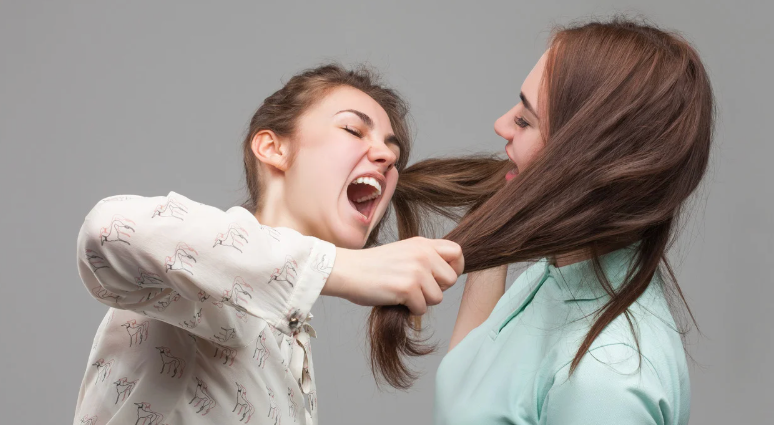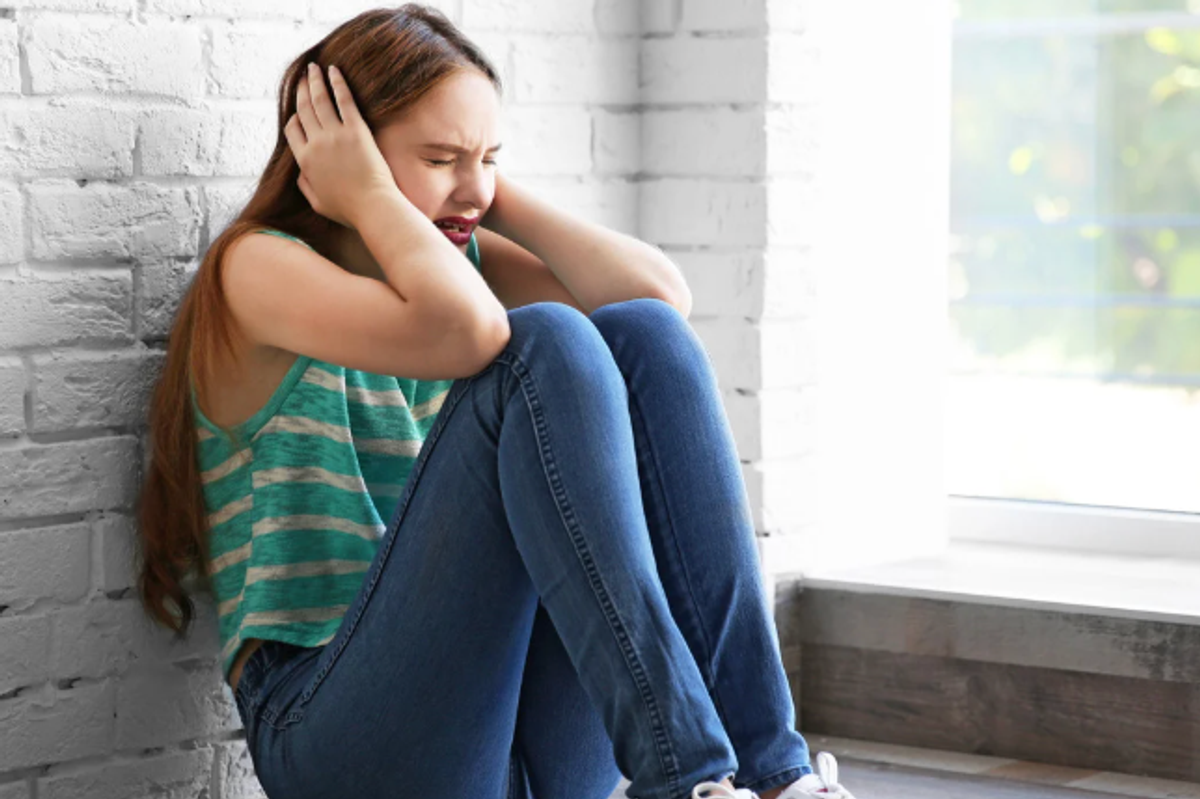Neuroscientist breaks down why 'normal tween girl drama' deserves a lot more compassion
“Most parents do not realize that between the ages of 8 and 12, your daughter's brain is rewiring itself while her confidence forms."
The science behind why they need more empathy.
If you’ve ever raised tween girls, been a tween girl yourself, or watched any shows with tweens in them, you’ll be all too familiar with tween girl drama. The eye rolling, the aloofness, the cattiness, the meltdowns…you get the idea.
But what if this newfound attitude isn’t just preteen girls being difficult, but a symptom of chronic dysregulation?
That was the insight recently given by Dr. Chelsey Hauge Zavaleta, who argued that most parents don’t understand that between the ages of 8 and 12, their daughter's brain is “rewiring itself while her confidence forms.”
And because of that, Zavaleta explained, her “nervous system is stuck in a constant state of overwhelm.”
“She will be unable to cooperate, not that she won't, not that she's being bratty, refusing, defiant, rude, she cannot cooperate. Her nervous system is too overwhelmed, and your task is to help her bring it down.”
Zavaleta then listed the five typical “tween drama” behaviors that, when constant and persistent, could be signs of an overworked nervous system.
1. She can't do basic routines that she has always done before.

While it might be irksome for parents to now give reminder after reminder for something they know their daughter knows about, Dr. Zavaleta kindly offered the reminder that, “This isn't defiance. She's too dysregulated to access her thinking brain.”
2. She makes nasty comments during family time.

This doesn’t come from meanness so much as deep insecurity.
“She's sitting there in your family, feeling judged and alone. The attention feels overwhelming when her nervous system is already maxed out,” said Zavaleta.
3. She doesn't care about stuff she used to care about.

Contrary to what it looks like, she actually cares so much that it is unbearable. To cope, she willfully disconnects.
“She cares so much, it hurts, but caring feels dangerous right now. Disconnection is protection when everything feels too intense.”
4. She is constantly picking fights with her siblings.

“She's looking for connection, but she only knows how to get attention through conflict. Her nervous system is seeking regulation through the friction created by drama,” Zavaleta explained.
5. She cries over “nothing.”

“Spilled milk becomes a huge meltdown,” said Zavaleta, painting a picture.
Thing is, “when your system is already flooded, the smallest thing is gonna tip you right over,” she added.
“Those tears aren't about the milk, they're about everything else.”
When put through this lens, it’s easy to see how “these are not behavior problems to be fixed with consequences,” as Zavaleta put it. Rather, they're “regulation problems” that need co-regulation support from the parents. After all, at this age kids are still hardwired to their parents' nervous systems, making it all the more imperative for parents to model healthy regulation practices.
“When you stay calm and grounded, she can access that state as well. When you are also dysregulated because parenting a dysregulated tween is hard, you're both stuck in survival mode.”
@drchelsey_parenting Join me for my LIVE webinar DECODING TWEEN GIRLS Comment TWEENGIRL for the registration link- and clear your calendars- being there live is the best thing!
♬ original sound - Dr. Chelsey HaugeZavaleta, PhD
Bottom line: when you think about all the inner “construction” going on, in addition to external factors—more and more school responsibilities, increasingly complicated friendships, a transforming body, etc.—there’s no doubt that young girls didn’t suddenly become ornery for no reason.
When parents feel that a boundary needs to be made, child counselor Katie Lear suggests offering a chance for “do-overs” when they catch an attitude. This helps preteens become more aware and gives them another opportunity to communicate calmly. Alternatively, parents can offer “natural consequences” that help preteens better understand cause and effect. She uses the example of not being available to drive her to a friend if you’re spending time doing the chores she fails to do.
None of this makes parenting during the tween phase any easier, per se. However, it does hopefully provide insight and tools that can elicit compassion, strengthen relationships, and offer an opportunity for both parents and children to emerge from a notoriously tumultuous chapter a little more grounded.
